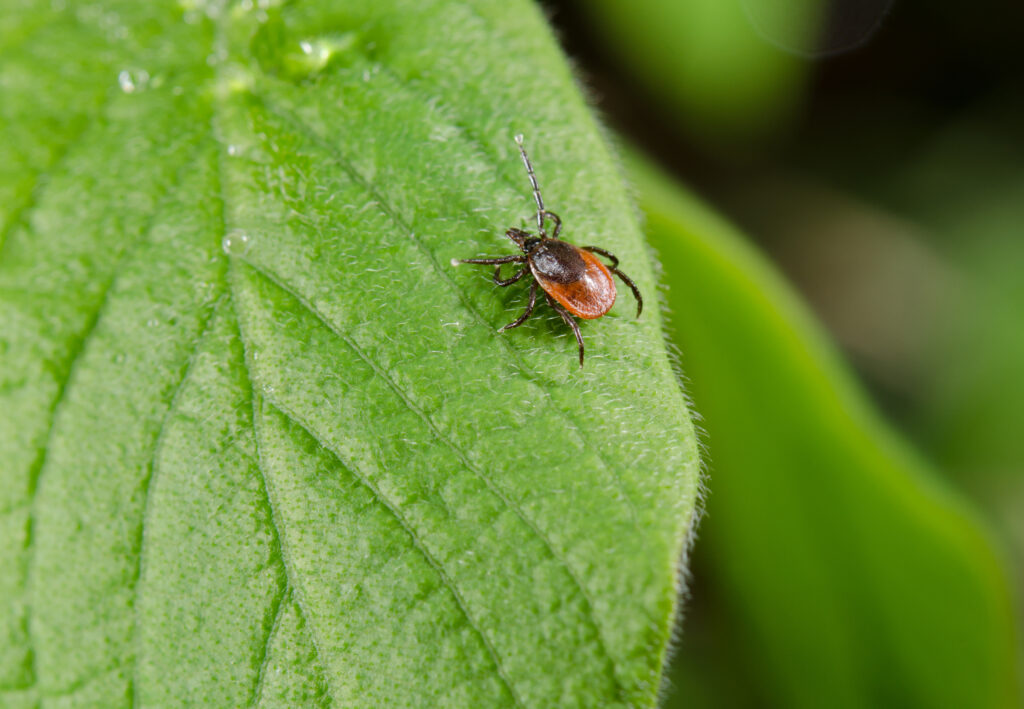Hikers beware: Ticks are on the rise after an unusually moist winter | News
#Hikers #beware #Ticks #rise #unusually #moist #winter #News,
[ad_1]
Ticks are always something to watch out for in the Bay Area, but this year warrants some extra vigilance. Recent sweeps in Portola Valley and the greater Bay Area indicate the population of disease-carrying arachnids is on the rise, which experts believe is tied to last winter’s intense rainy season.
The Bay Area Lyme Foundation, founded in 2012 and headquartered in Portola Valley, periodically conducts tick sweeps at locations throughout the Bay Area, including in Portola Valley’s Windy Hill Preserve.
The foundation’s most recent sweep was in March, and while the data hasn’t yet been finalized, Executive Director Linda Giampa said early estimates indicate a 10-20% increase in ticks compared to the foundation’s last sweep in 2019.
“It was much easier to collect the ticks than it had been in 2019,” Giampa said. “And it was a huge rainy season, so we know that leads to more ticks.”
Not only are there more ticks this year, but tick season will likely last a lot longer, Giampa explained, because ticks love moisture. Typically, the number of ticks begins to wane by August or September – but not this year.
“Because of the abundance of rain, things stayed greener for longer,” Giampa said. “Even Windy Hill stayed green until fairly recently. You’ll get more ticks the greener that it is, and the more moist it is in the area.”
This year, the Bay Area Lyme Foundation partnered with researchers from Northern Arizona University and Colorado State University to conduct the tick sweeps, a surprisingly rudimentary process.
“You have a white felt piece of fabric, you tie it onto a long pole, the fabric lays down, and you walk on the paths of all of these places and you drag the felt along the sides of the paths,” Giampa said of the sweep process. “Then you take that fabric and you pick off all the ticks you find. … You put them in jars and categorize them.”
While counting the number of ticks is rather simple, what’s more complicated is determining the proportion of ticks that are carrying diseases. Those findings will be published next year, Giampa said, and will help the foundation further its core mission: Making Lyme disease easy to diagnose and simple to cure.
“Tick-borne diseases, and Lyme disease in particular, cause complex, multi-system health issues with devastating consequences,” the foundation’s website states.
According to the Mayo Clinic, early symptoms can include fever, headache, extreme fatigue, joint stiffness, muscle aches and pains, and swollen lymph nodes. Without treatment, symptoms can worsen and have serious impacts on infected people’s quality of life.
The foundation’s work stretches further than its Portola Valley headquarters, funding Lyme disease research across the nation. Giampa said the foundation works directly with top Lyme doctors across the United States and has granted $25 million to Lyme disease research.
But the organization also offers resources close to home: Giampa encouraged anyone living in Portola Valley or nearby communities to come visit the Bay Area Lyme Foundation headquarters at 884 Portola Road to learn more about how to check for ticks and prevent tick-borne disease.
Giampa recommended that after hiking, outdoor enthusiasts should always check themselves and their dogs for ticks. She also recommended that folks place their clothes in a hot dryer for 20 minutes after returning from a hike, which will kill off any hiding ticks.
Giampa said any questions can be directed to the foundation in person or over the phone at 650-530-2439.
“That’s what we’re here for,” she said.
[ad_2]
thank youf or watch : Hikers beware: Ticks are on the rise after an unusually moist winter | News
[ad_1]
Hikers beware: Ticks are on the rise after an unusually moist winter | News
[ad_2]
